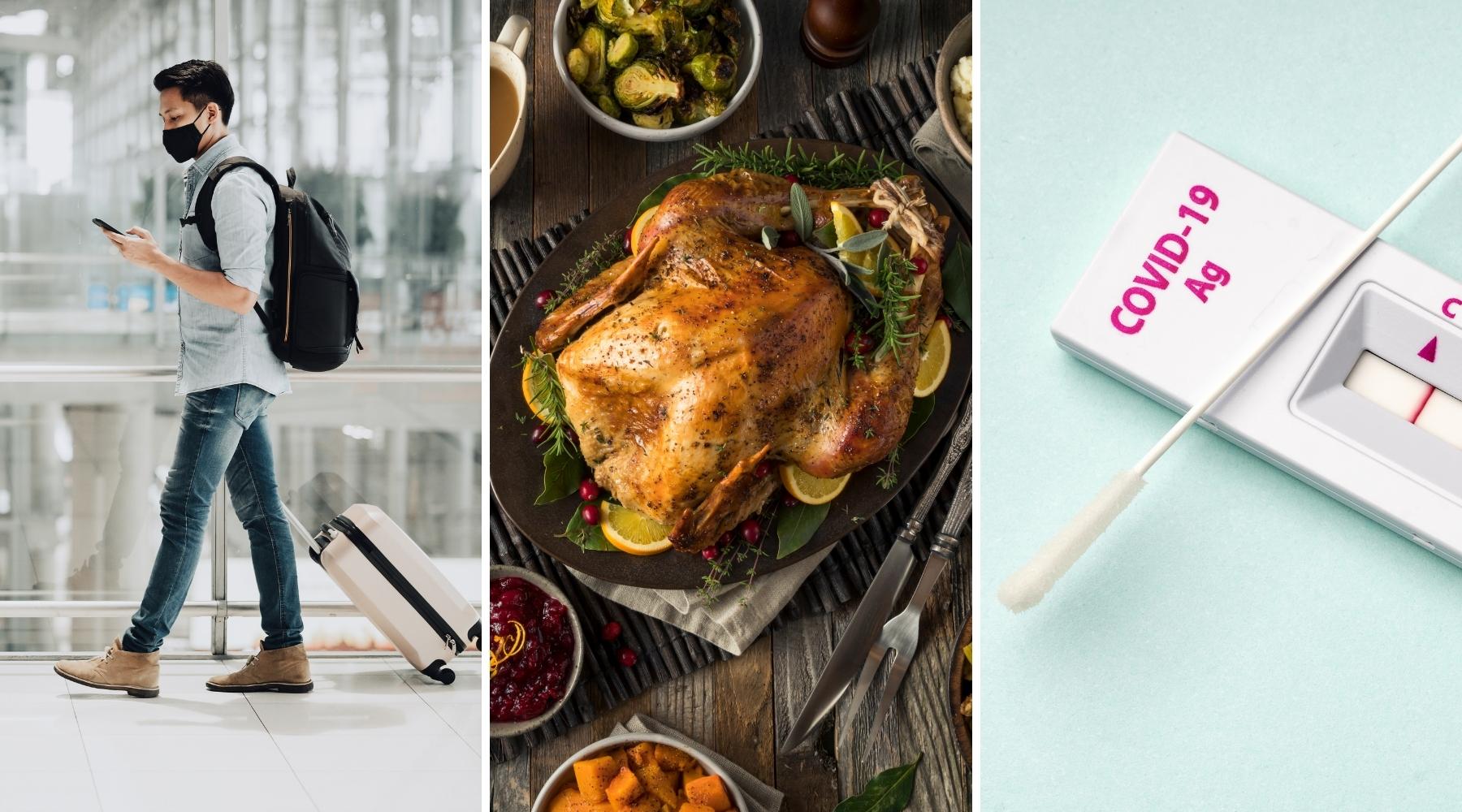One year after the largely virtual holidays of 2020, normal-ish holiday celebrations are resuming for many in the U.S.
How can you feel confident you won’t take Covid-19 home with your leftovers if you venture out? Scientists at Oklahoma Medical Research Foundation have tips to guide you.
1. Get the scoop on vaccination
“The best-case scenario is that everyone at the event who can be fully vaccinated is fully vaccinated,” said OMRF immunologist Eliza Chakravarty, M.D. “If you’re unsure about someone’s status, it’s ok to ask.”
While breakthrough infections of Covid-19 are possible among the fully vaccinated, the frequency and severity of symptoms are far lower than among the unvaccinated, Chakravarty said.
2. Don’t skimp on masks
If an airport or other busy, indoor public places stand between you and your turkey dinner, opt for a high-quality surgical mask such as a KN95 over those of the cloth variety.
One 2021 study currently under peer review from researchers at universities including Yale and Stanford found that surgical masks are 95% effective at filtering out virus particles, compared to just 37% for cloth masks.
“Remember, masks offer two-way protection: for you and those you’re around,” said OMRF immunologist Hal Scofield, M.D.
3. Testing, one, two
For gatherings with multiple households, the U.S. Centers for Disease Control and Prevention suggests considering adding testing to holiday preparations.
“At-home rapid tests provide an easy way to do this,” said Scofield, of antigen tests available from local pharmacies. “Tests come two to a box. Test once 48 hours before your event, and again 24 hours before the event.”
Scofield added that in the case of high likelihood of disease, a negative antigen test is most likely a false negative. “But, if you have no known exposure, are fully vaccinated and have been wearing your mask, a negative antigen test is likely to be a true negative,” he said.
4. Ventilate to celebrate
With the highly transmissible delta variant in circulation, good ventilation remains as important as it was in 2020.
“Eat on the back patio, turn on exhaust fans, or open the windows,” said Chakravarty. “This may also help protect against the transmission of other airborne viruses back in circulation, such as influenza.”
5. Check the numbers
Review the transmission rates of your destination before you travel at www.cdc.gov/coronavirus.
“Checking beforehand may provide some last-minute guidance on whether attending is wise, particularly if you’re in a higher-risk category,” Scofield said.
Thanks to vaccines, said Chakravarty, many of us can have a safer holiday season in 2021. But, she added, it’s important to respect the wishes of those in attendance.
“Safety is relative given everyone’s individual risks,” she said. “If your host requires particular precautions, embrace them and enjoy getting together again.”



